International Community Development Profile: Olesta Chuma Family
In this series, families in the Reaching Children’s Potential (RCP) Demonstration Program in Tanzania explain how their participation improves their lives. Global Volunteers’ RCP Program engages short-term volunteers to help parents deliver essential services improving health, eradicating hunger, and enhancing cognition – with the goal of eliminating child stunting in the Ukwega Ward and throughout Tanzania. Through RCP, families obtain the nutrition, health care, knowledge, technology, and encouragement needed to combat stunting, and to ensure their children can realize their full potential. The RCP Program is a child-focused, parent-driven, family-centered, and community-led comprehensive effort. It begins with pregnancy, and continues through the 18th birthday, with a focus on the first 1,000 days of life. Read Olesta Chuma’s interview about the RCP Program here.
Olesta, we’re interested in your background and your daily life. Can you tell us about where you grew up and what a normal day is like for you?
I was born and raised in Ukwega. My education level is primary school. I’m a single mother and my parents are my greatest supporters. I live with my parents and my siblings. I farm for a living, mostly corn and beans. My parents also have other crops like bananas, avocados, yams, and potatoes. Ukwega has good fertile land to grow crops.
I usually wake up at 6:00 in the morning. Before going to the farm, I do some domestic activities and prepare breakfast for my child. I usually spend my day in the field. I prepare three meals per day, but for Rebecca, even more — four times per day. The distance to fetch water from here is 15 minutes back and forth. When I get time to relax, I usually play with my child or sleep. It’s very rare for me to tell stories with friends. If it happens, it may be on a Sunday evening. I’m not very interested in reading, but I sometimes read the Bible.
Can you tell us a bit about Rebecca, what she likes to do, and how she has been growing in the RCP Program?
Rebecca likes to play. She likes sports so much. A nurse who helped me deliver is the one who suggested the name “Rebecca”. She was a friend of mine when I was pregnant. My child has become very different nowadays. She is growing so well now and she is very active. I try my best to make sure that she always has something to play with, especially when I’m busy. I sometimes make some toys for her. She is now a lot more active and doesn’t cry as much. She looks very different. She is doing great.
Have the Rise Against Hunger meals been important for your and Rebecca’s nutrition?
The Rise Against Hunger meals are very important and helpful to me and my child because we get enough vitamins and my child’s weight has increased to some extent since she started eating them. When she was a baby, her weight was not increasing at all. She did not like to eat and she was so picky, but she loves the Rise Against Hunger meals more than any other food. She might refuse to eat everything else, but Rise Against Hunger meals are the only food that she will accept. I hope her weight will increase even more since I’m feeding her these meals three times per day. As for me, the meals helped me to have enough breast milk all the time. I always add salt when cooking these meals. We often eat them with beans, vegetables, or fruits, particularly avocados. We eat vegetables three to four times per week and fruits, too — mostly bananas and avocados. Other foods that we eat are ugali, yams, potatoes, beans, meat when it is available and affordable, sardines, fish, and cassava. We always eat three meals per day.
When you learned about hand-washing stations, what did you decide to do at home? How has the hand-washing station helped your family?
When I learned about handwashing, I decided to create a culture in our house of washing our hands regularly with soap and water by using a small jug and a bucket with soap. That was before we received the hand-washing station. I also had the chance to teach my family members about this practice in the evening while we were in the kitchen telling stories. I told them about the importance of washing our hands with soap and water and they all agreed to practice handwashing. I also made them aware that the hand-washing station was going to be installed and I told them how it would work. Everyone was receptive to that and excited. We are all now a happy family because we are no longer suffering from regular diseases we used to suffer from, such as diarrhea and stomach diseases.
I believed that it was a good practice to adopt because when I heard about the hand-washing station in the workshop, I created a mindset that it’s an easy way to wash our hands since soap and water will always be there at the station. It’s different from when we only we used a jug and a bucket where soap is not always available. So most of the time we used to wash our hands with no soap or not at all. The easy technology of the hand-washing station has helped us to be effective in washing our hands with soap and water regularly.
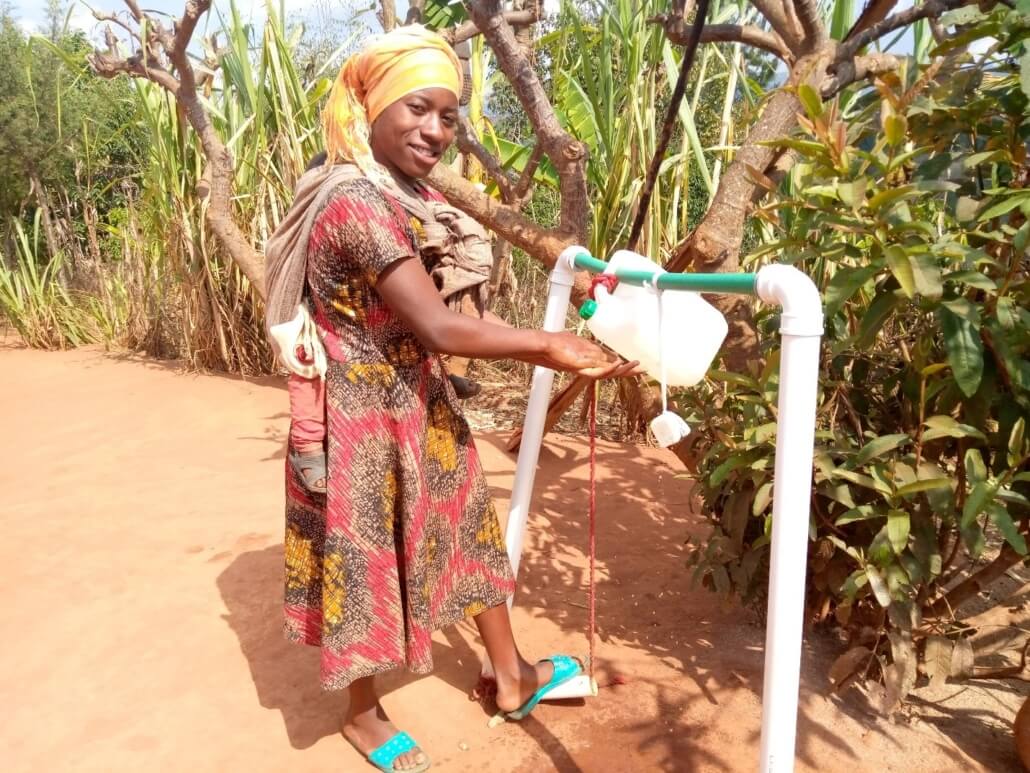
“The easy technology of the hand-washing station has helped us to be effective in washing our hands with soap and water regularly.”
– OLESTA cHUMA, rcp MOM
What are the personal changes you’ve made in your life since joining RCP that have resulted in better health for you and you children? What are you doing differently now?
One of the things I have learned from the program and that I now practice is being near your child and sometimes playing with her. I was not doing this before, but when I was told the importance of this at the workshop, I decided to sometimes take time to play with my child and make up stories with her. I even make some local toys like a bottle with beans or corn inside so that she can hear sounds when she shakes the bottle. This has been very helpful because she is no longer crying as much as before since the toy draws her attention.
I also boil drinking water nowadays. Before the program, we were drinking unboiled water, which was not safe for our health, especially our children’s. My family and I have changed the way we wash our hands as well. We now always wash our hands with soap and clean water. The program has brought very positive changes to our family.
“The program has brought very positive changes to our family.”
– Olesta Chuma, RCP mom
In what other ways are you educating yourself about improving health, nutrition, and cognition?
I usually try my best to make sure that my child gets a variety of foods and isn’t eating only ugali or one type of food during the entire day. I try to prepare different foods in a day.
If you have been using the clinic services in Ipalamwa, how are they different from medical services available before the clinic opened?
The services at the Ipalamwa General Clinic are great because the medicines that they give are very helpful. They have many services available and we can be treated for free.
What are your family’s biggest challenges? How do you try to address them?
Having a child and still living with my parents is my biggest challenge, and raising a child on my own. I am working hard so that in the future I can have my own home.
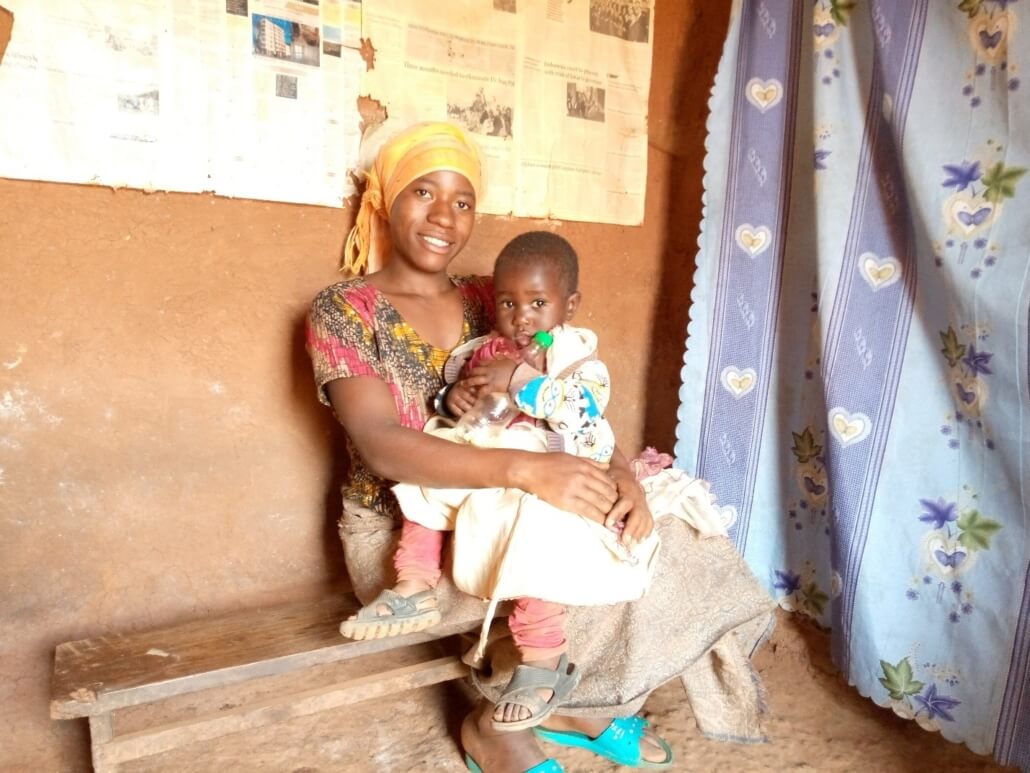
What are you most proud of in your family? What do you hope for in the future?
I feel very happy when I look at Rebecca. She is always my comforter. I would like to continue farming and have more farms to grow crops. I want my child to be a very educated person with a great job, like a nurse. I’m working hard to make sure she grows well and reaches her potential.
What values from your ancestors and cultures are you trying to maintain?
Whenever there is a village gathering or at church, men and women sit separately on different sides. This is a sign of respect for our village.

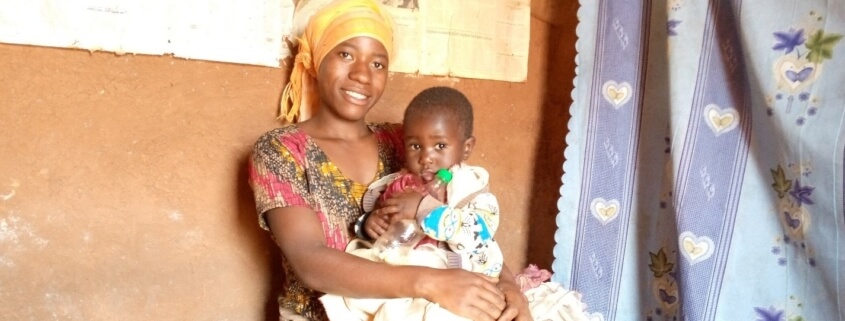
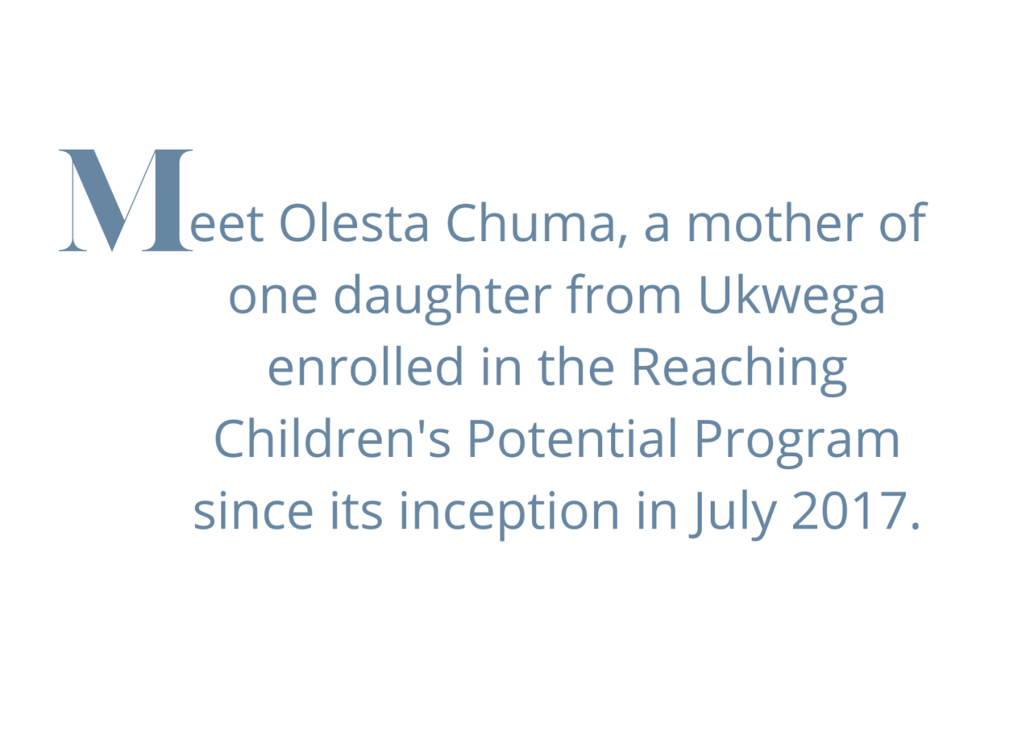
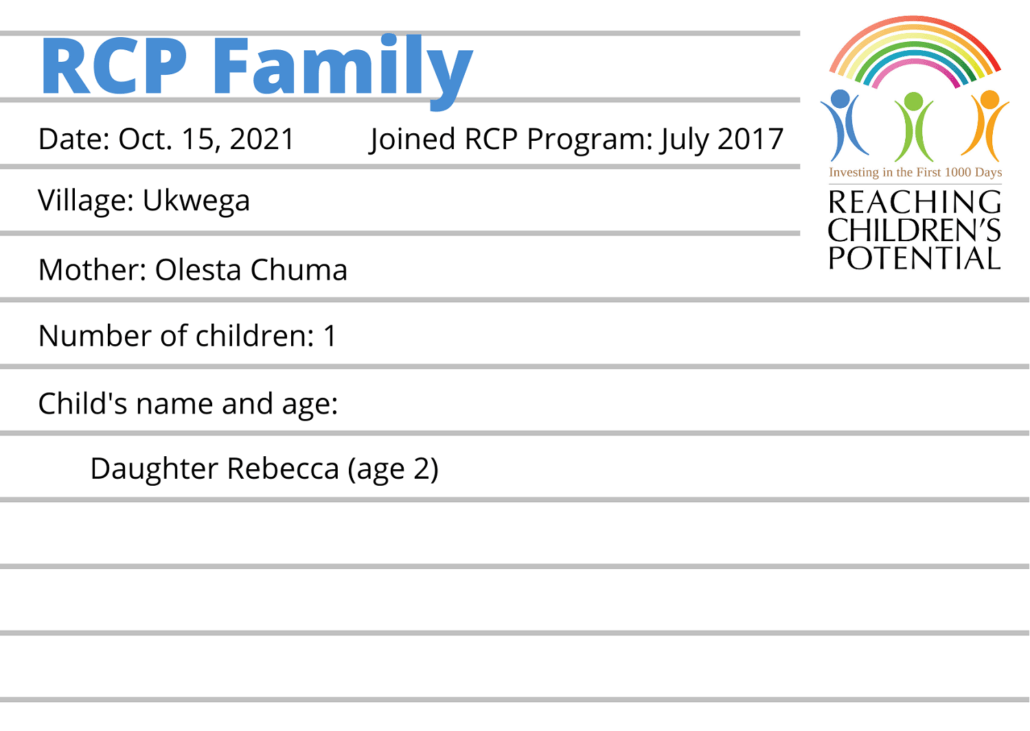


Leave a Reply
Want to join the discussion?Feel free to contribute!